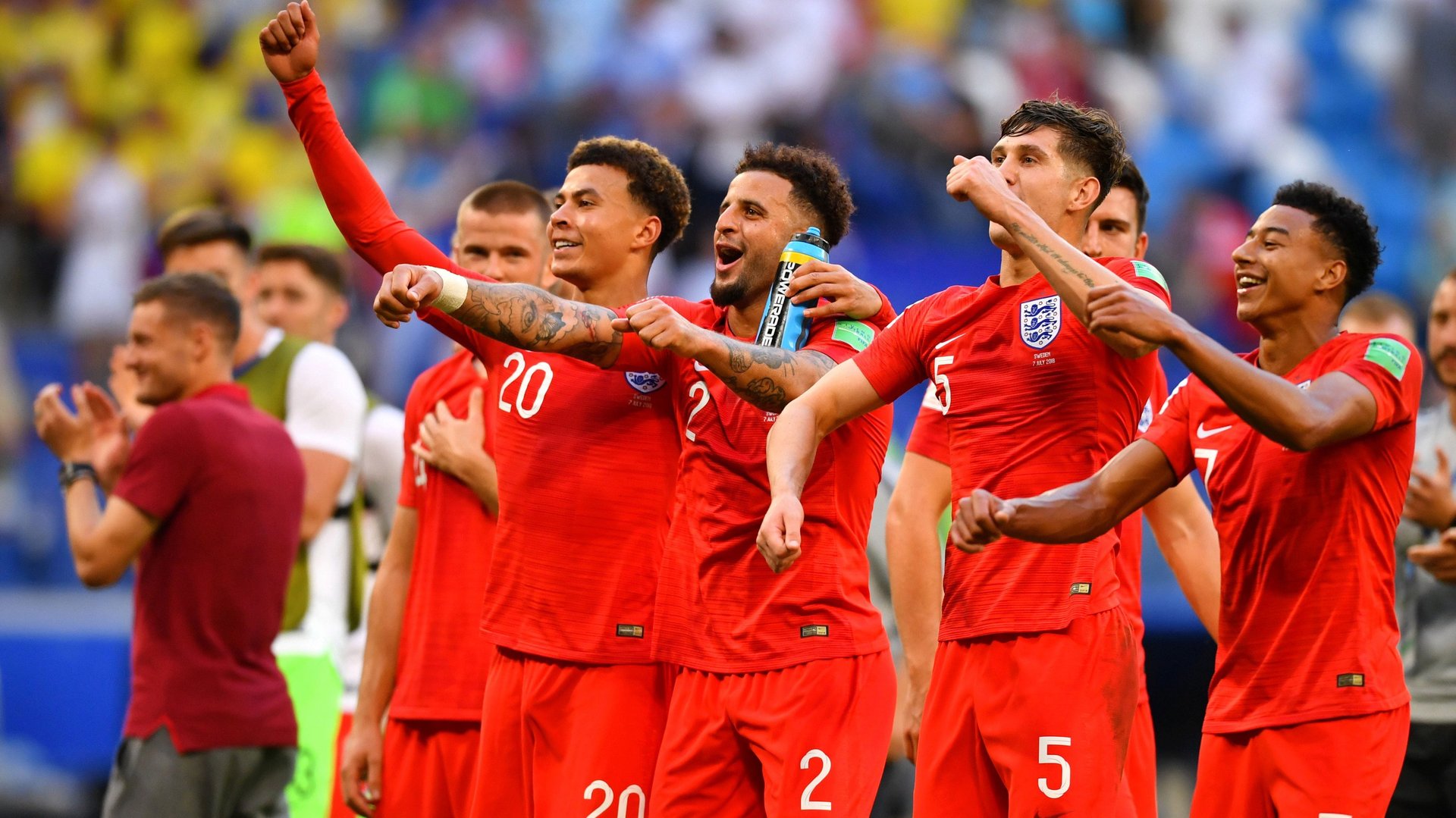England’s soccer team is a far better reflection of the population than its other sport teams
English sports teams are largely dominated by the privately educated. Soccer, however, remains the glaring exception.


English sports teams are largely dominated by the privately educated. Soccer, however, remains the glaring exception.
England has three main types of high schools: selective schools, which are free but based on entry tests; private schools; and comprehensive schools—a type of public school that doesn’t select students based on their aptitude or wealth. Just 7% of the UK population attend private schools. But those who are privately educated are overrepresented in elite sports.
But none of the English soccer team’s starting line-up went to a private school, according to the Sutton Trust, a foundation that campaigns for social mobility. All members of the starting 11 hail from comprehensive schools.
In comparison, 56% of the English rugby team’s starting line-up went to a comprehensive school, while 55% of the English cricket team did the same. The privately educated made up 44% of the rugby team’s starting line-up and 45% of the cricket team’s starting line-up.
It’s not much better for the UK as a whole. One-third of Britain’s Olympic medals since 2000 have been won by those from private schools. A child who goes to private school is five times more likely of winning an Olympic medal than one who didn’t, according to i news.
There is also a deep economic divide between the north and south of England, with the latter far richer. But the English soccer team’s starting line up is largely made up of those from the north of the England. Harry Kane, Dele Alli, Ashley Young, and Raheem Sterling are the only four players who could be classed as southerners. The Sutton Trust also notes that the current makeup of England team is “uncannily similar” to a former team in education and geography—England’s 1966 team that went on to win the World Cup.